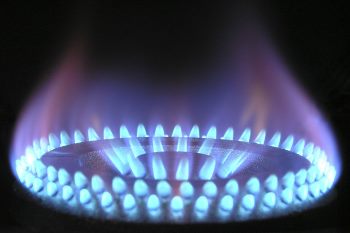property>volumetric calorific value
What is Volumetric Calorific Value?

The volumetric calorific value, or volumetric heat of combustion, is the amount of energy generated by the combustion of a unit volume of a fuel. The calorific value is also sometimes referred to as heating value or therm value.
Although the energy content of any fuel could be measured in this way, its practical use is as a measurement of the energy content of gaseous fuels such as natural gas. Normally these fuels are delivered in gaseous form and are metered by some form of flow meter.
The volumetric calorific value, particularly of natural gas, may vary over time and this is normally taken into account when billing customers who are metered by volume consumed, but billed according to the energy content. This is because of variations in the precise composition of methane, ethane, propane, carbon dioxide, water content and other fractions. Pressure and temperature will also be factors, although a gas supplier will endeavour to keep the pressure constant.
Volumetric calorific value can be measured either by analysis of the gas composition (since the calorific value of the constituent gases is known) or by buring a sample of the gas in a calorimeter.
For the colorific value by mass, see heat of combustion.